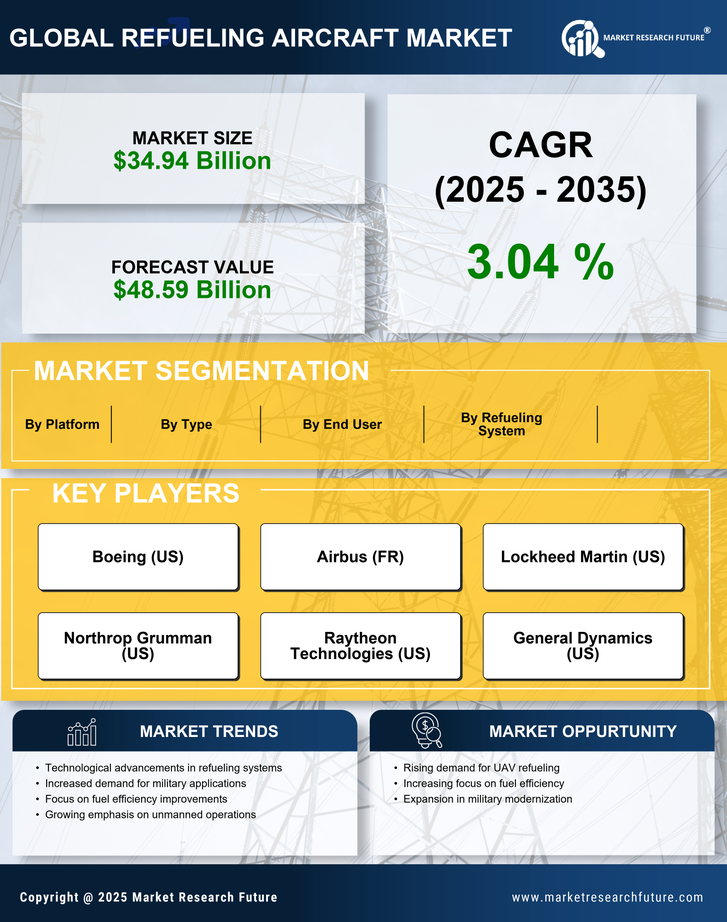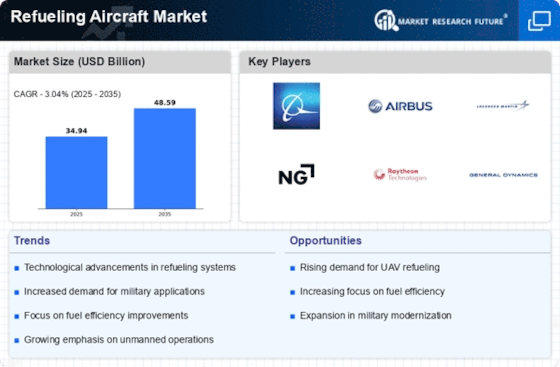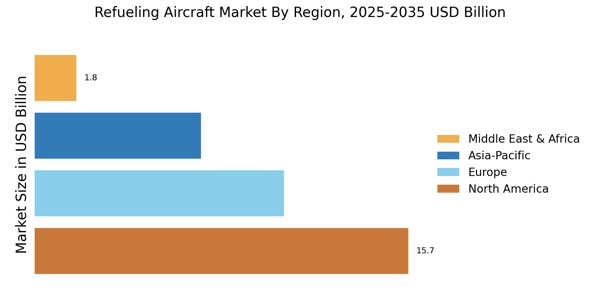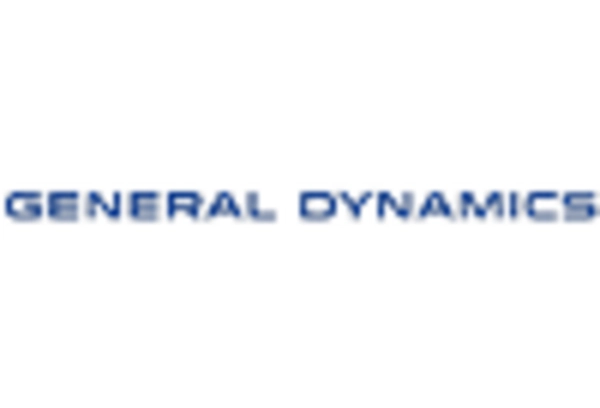Increasing Defense Budgets
The Refueling Aircraft Market is experiencing a notable surge due to increasing defense budgets across various nations. Governments are prioritizing military readiness and modernization, leading to enhanced investments in aerial refueling capabilities. For instance, countries such as the United States and India have allocated substantial portions of their defense budgets to upgrade their air force fleets, which includes acquiring advanced refueling aircraft. This trend is expected to continue, as geopolitical tensions and the need for strategic air operations drive demand. The market is projected to grow at a compound annual growth rate (CAGR) of approximately 5% over the next decade, reflecting the critical role of refueling aircraft in maintaining operational efficiency and extending the range of military missions.
Growing Focus on Sustainability
The Refueling Aircraft Market is witnessing a growing focus on sustainability, driven by environmental concerns and regulatory pressures. As military organizations aim to reduce their carbon footprint, there is an increasing emphasis on developing eco-friendly refueling solutions. This includes the exploration of alternative fuels and energy-efficient technologies in refueling aircraft. The market is likely to see innovations aimed at minimizing environmental impact while maintaining operational effectiveness. Furthermore, as sustainability becomes a key consideration in defense procurement processes, manufacturers that prioritize eco-friendly practices may gain a competitive advantage, thereby influencing market dynamics in the coming years.
Rising Demand for Aerial Mobility
The Refueling Aircraft Market is significantly influenced by the rising demand for aerial mobility, particularly in military operations. As armed forces seek to enhance their operational capabilities, the need for efficient refueling solutions becomes paramount. This demand is driven by the increasing complexity of modern warfare, where rapid deployment and extended mission durations are essential. The market is projected to witness a growth trajectory, with estimates suggesting an increase in the number of refueling aircraft required to support various military operations. Furthermore, the integration of advanced technologies in refueling systems is likely to enhance the efficiency and effectiveness of aerial refueling, thereby further stimulating market growth.
Strategic Partnerships and Collaborations
Strategic partnerships and collaborations among key players in the Refueling Aircraft Market are fostering innovation and expanding market reach. Manufacturers are increasingly collaborating with defense contractors and government agencies to develop advanced refueling solutions tailored to specific operational needs. These partnerships facilitate knowledge sharing and resource pooling, enabling the development of next-generation refueling aircraft. Additionally, collaborations with technology firms are enhancing the integration of digital solutions into refueling systems, thereby improving operational efficiency. This trend is expected to drive market growth as stakeholders seek to leverage synergies and enhance their competitive positioning in the evolving landscape of aerial refueling.
Technological Innovations in Refueling Systems
Technological innovations are playing a pivotal role in shaping the Refueling Aircraft Market. The advent of advanced refueling systems, such as boom and probe systems, has revolutionized aerial refueling operations. These innovations not only improve the efficiency of refueling processes but also enhance the safety and reliability of operations. The market is witnessing a shift towards more automated and sophisticated refueling solutions, which are expected to reduce operational costs and increase mission success rates. As military forces continue to adopt these cutting-edge technologies, the demand for modern refueling aircraft is likely to rise, contributing to the overall growth of the market.


















